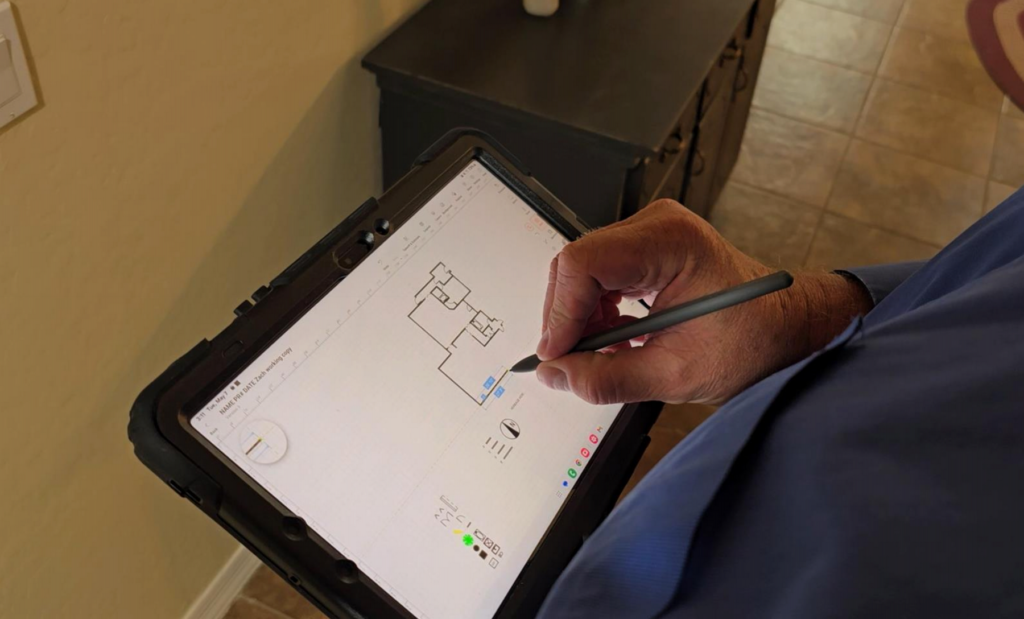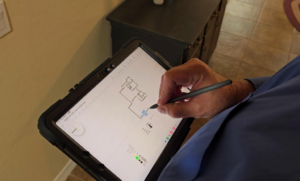Discovering cracks in the foundation or walls of your home can be concerning. These imperfections often lead homeowners to ask, “Do I need to fix this?” “Is this a serious problem?” For someone who is not familiar with concrete and foundations and how these materials are manufactured and used to build homes, seeing cracks of any kind can certainly create some anxiety. Let’s take a minute and consider a few points that will help any homeowner better evaluate cracks in their foundation and decide what steps to take to best take care of their home.
First, let’s talk about why foundation cracks happen. Cracks in your foundation can occur for various reasons, such as:
- Natural Settlement: As the materials used to build a home age and settle in over time, the foundation may develop small cracks. Foundations are commonly designed to withstand a modest amount of movement in the soil supporting them before any visible distress turns up. These cracks are typically small and generally harmless but should still be monitored over time for any significant changes.
- As the cement and water in a concrete mix react chemically and the concrete goes through the curing process and becomes harder and stronger with time, the concrete tends to shrink slightly and small cracks can develop. These cracks are generally narrow and pose no structural concerns.
- Soil Movement: Poor drainage, water pooling near the foundation from heavy rains or water line leaks under or near your foundation can cause extreme fluctuations in the moisture of the soil supporting your foundation. Expansive clay soils that are common in many parts of Arizona expand and contract with changes in moisture and this movement can exert pressure on the foundation which can cause the foundation to crack. Sandy silty loose soil can settle when exposed to concentrated moisture and this can also lead to cracks.
Second, foundation cracks can come in all shapes, sizes and orientations. Not all cracks are created equal. Here are some common types:
- Hairline Cracks: Often caused by curing concrete or minor settling. These are usually cosmetic but should be monitored for changes.
- Horizontal Cracks: These can indicate significant pressure from the surrounding soil or water and often require professional attention.
- Stair-Step Cracks: Found in block foundations, these cracks are usually a sign of settlement or moisture problems but in some types of masonry construction can just be signs of age and wear.
- Diagonal Cracks: Typically caused by uneven settling or concrete shrinkage, they can grow worse over time.
Third, when to worry about foundation cracks. While small cracks are common, some of these warning signs suggest a more serious issue:
- Cracks wider than ⅛ inch.
- Cracks that grow or change over time.
- Compound cracks. Cracks that split into multiple cracks.
- Cracks that continue from the concrete foundation up the wall of a structure.
- Water or moisture seeping through the cracks.
- Signs of structural stress, such as uneven floors, sticking doors or windows, or a leaning chimney near these cracks.
If you notice any of these more serious cracks, it’s essential to act quickly. Ignoring these signs can lead to more costly repairs and compromise your home’s structural integrity.
Fourth, what should you do? These steps can help a professional narrow down the potential causes and give better recommendations for any repairs.
1. Monitor the Cracks: Take note of when you first noticed the cracks and watch for changes over a complete seasonal cycle. Measure the widths and lengths and make notes if they get wider or longer. Time-stamped photos are great. Use a ruler or tape measure across the crack in the photos.
2. Call the Experts: For peace of mind, get an inspection from a professional engineer with experience in concrete and foundations. A few hundred dollars is worth the peace of mind.
Finding cracks in your foundation can be worrisome. If you consider the outline above, you can identify cracks that might be a concern and be able to get the help you need.
Clint. L. Mueller, P.E., M.B.A.
President
Xcel Forensic Foundation Inspections LLC



